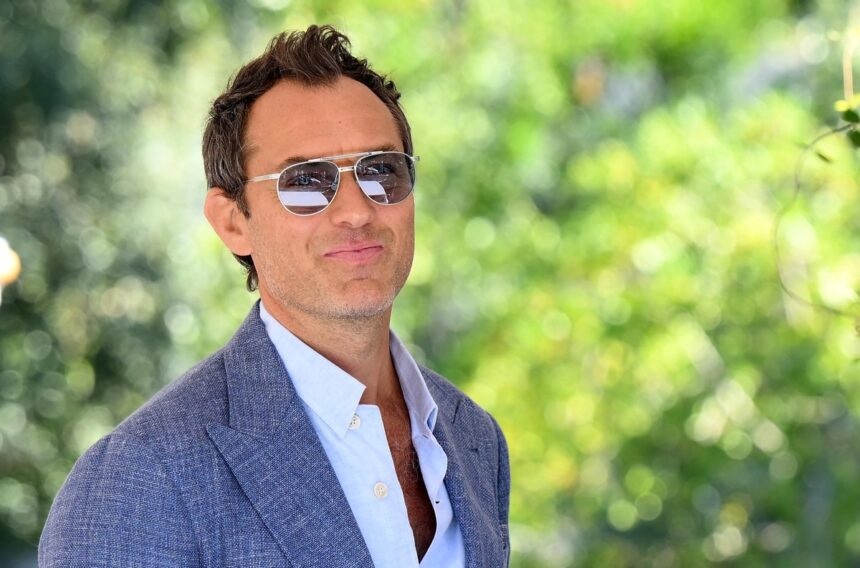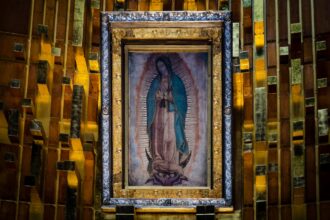British actor Jude Law surprised at the Venice Film Festival with his transformation into Russian President Vladimir Putin in the film The Wizard of the Kremlin, directed by French director Olivier Assayas and based on the successful novel of the same name by Italian writer Giuliano da Empoli.
The film, which is competing for the prestigious Golden Lion and brought Jude Law to Venice, offers a critical look at Putin’s rise and the transformation of Russian politics in the 1990s.
Jude Law’s transformation
Unlike other biopics in which the actors resort to prosthetics or extreme characterizations, Law opted for a more sober approach.
With just a gray wig and an intense work of observation on the gestures and body language of the Russian leader, the British interpreter sought to convey the essence of the character without falling into caricature.
“It’s amazing what a gray wig can achieve,” Jude Law commented in Venice, explaining that he worked together with Assayas on the idea of not disguising Putin, but finding in himself points of connection from the vast audiovisual material available of the Russian leader.
Although Putin appears as a secondary character in the story, his presence is key to understanding the central narrative of the film.
The story behind the Kremlin
The real protagonist of The Wizard of the Kremlin is Vadim Baranov, played by Paul Dano. Baranov is an advisor inspired by Vladislav Surkov, one of the Kremlin’s most influential strategists.
Considered the architect of the so-called “managed democracy”, a model that turned Russian politics into a media spectacle.
The plot traces the years following the fall of Boris Yeltsin, in which Russia went from the euphoria of freedom to the rise of the oligarchs and the consolidation of authoritarian power.
Assayas uses the script to show how political power mixed with the media and how a narrative was created around Putin that set the course of 21st century politics.
Actors and their vision
For Paul Dano, the challenge was to build a complex character that cannot be reduced to the label of villain.
“If Baranov were simply labeled as bad, it would be a huge oversimplification that would bring more harm than good. We have to ask ourselves why,” he noted.
Alicia Vikander provides a female counterbalance by playing Baranov’s first girlfriend.
Her character, according to the actress, functions as “a moral mirror” that forces the protagonist to confront his decisions and responsibilities.
Assayas stressed that it was essential to include this vision, as it symbolizes the energy of a country seeking a new path in the midst of drastic changes.
Reflections on power and politics
The French director explained that his film tells “how 21st century politics was invented” and how Putin’s figure was shaped through controlled media strategies and narratives.
Assayas stated that what is disturbing is not only what happened in Russia, but that many of these dynamics are replicated globally today.
Jude Law, for his part, confessed that the experience gave him a better understanding of what power means and what each individual chooses to experience in his or her life.
Laughing, he added that the only thing he learned practically during the filming was judo.
Writer Giuliano da Empoli, present at the conference, recalled that the book was written before the Russian invasion of Ukraine in 2022.
But today it acquires an even stronger meaning because it reveals the roots of a power that already showed violence from the beginning.
That violence, he warned, is what explains to a large extent the consequences that the world is experiencing today.
Es increíble lo que una peluca gris puede conseguir
Jude Law














